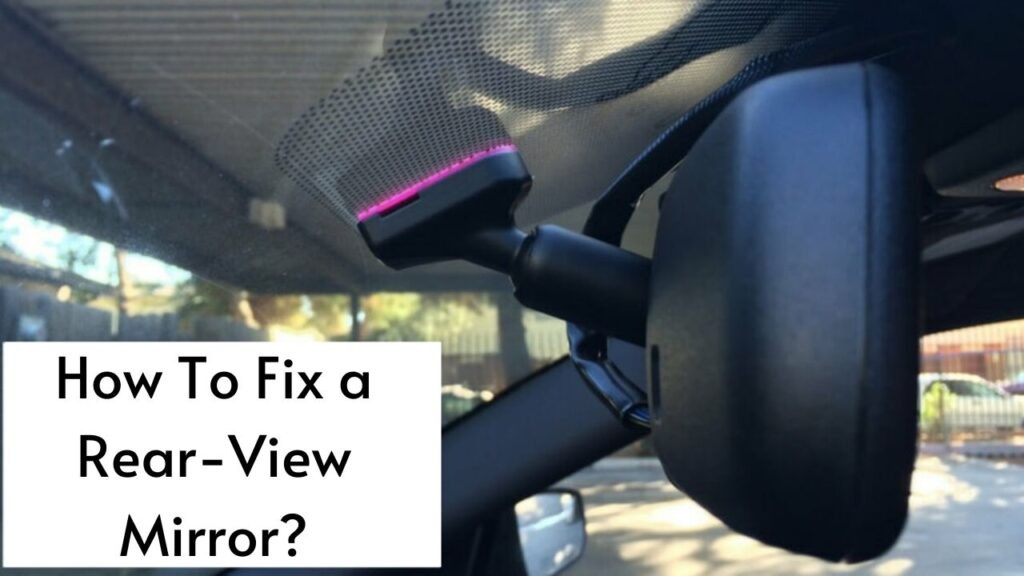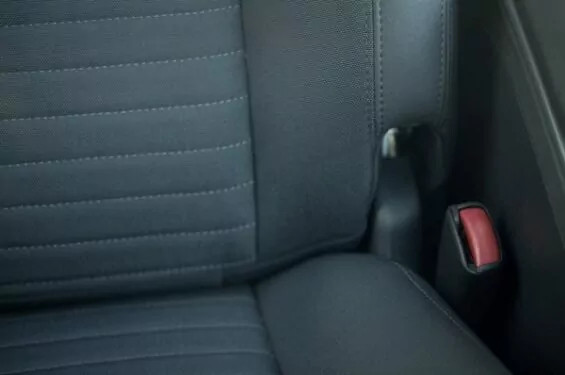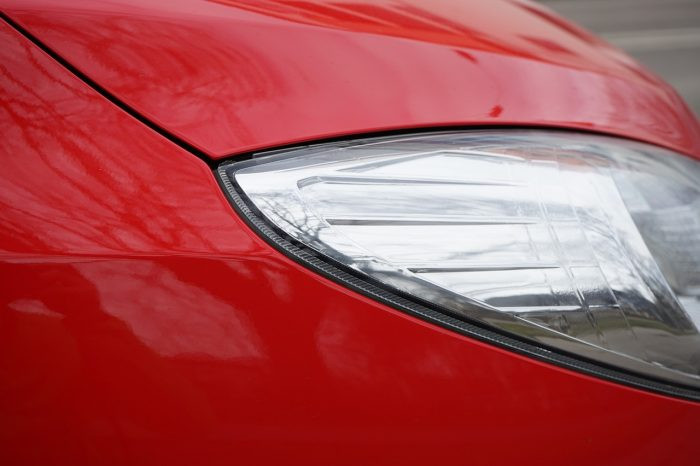Can I Use My Insurance To Fix My Car?
Can I Use My Insurance To Fix My Car? Navigating the aftermath of a car accident can be stressful, but CARDIAGTECH.NET is here to help you understand how your insurance coverage can assist with vehicle repairs and collision coverage. This guide clarifies your rights and options, ensuring you get the best possible outcome following a car accident, including diminished value and total loss claims.
1. Understanding Your Rights: Repairing Your Car with Insurance
1.1 Your Choice of Repair Shop
You have the right to choose where your car is repaired. Insurance companies cannot force you to use a specific repair shop. Whether you prefer a dealership, a local garage, or a specialty shop, the decision is yours. This freedom ensures you can select a repairer you trust and who meets your standards.
- Consumer Protection: This right is protected by consumer protection laws in most states.
- Expert Advice: Consult with your mechanic or trusted advisor for recommendations on reputable repair shops.
1.2 Insurance Company Recommendations
Insurance companies often provide a list of preferred repair shops. These shops typically have agreements with the insurer to provide services at a lower cost. While using these shops can streamline the repair process, you are not obligated to choose from this list. Ensure the shop meets your standards for quality and service.
- Contractual Agreements: Insurers often have agreements with preferred shops to control costs.
- Independent Research: Always research any recommended shop to ensure they have a good reputation and qualified technicians.
1.3 Negotiating Repair Costs
In most cases, the repair shop and your insurer will agree on a repair price. However, if they cannot agree, you can request that your insurer re-evaluate the shop’s estimate. If a consensus cannot be reached, you may need to pay the difference between the shop’s labor rate and the insurer’s willingness to pay.
- Communication is Key: Keep open lines of communication between the repair shop and your insurer.
- Documentation: Obtain written confirmation from the insurance company that they have agreed on a price with the repair shop before any repairs begin.
2. Resolving Disputes: What to Do If You Disagree With Your Insurance Company
2.1 Filing a Complaint
If you disagree with the amount your insurance company is willing to pay, start by filing a complaint with your state’s Insurance Department or Consumer Affairs Division. This step can often lead to a resolution through mediation or arbitration programs.
- State Regulations: Each state has specific regulations and programs to assist consumers in resolving insurance disputes.
- Arbitration Programs: Many states offer arbitration programs to settle disputes without going to court.
2.2 Arbitration Programs
Arbitration programs are designed to settle disputes about the amount of damages in auto physical damage claims where coverage and liability are not in question. These programs offer a cost-effective and quicker alternative to court.
- Eligibility: Check the eligibility criteria for your state’s arbitration program, as they often have specific requirements.
- Third-Party Assistance: While third-party providers like auto body shops can offer technical assistance, only the claimant can elect to arbitrate.
2.3 Legal Action
If arbitration or mediation is unsuccessful, you may need to file a lawsuit against the at-fault driver or your insurance company. Consult with an attorney to understand your legal options and the potential costs and benefits of pursuing litigation.
- Statute of Limitations: Be aware of the statute of limitations in your state, which limits the time you have to file a lawsuit.
- Legal Consultation: A consultation with an attorney can provide clarity on your rights and the best course of action.
3. Understanding “Totaled” Vehicles
3.1 Definition of “Totaled”
A vehicle is considered “totaled” when the cost to repair it exceeds its market value, as determined by the insurance company. In such cases, the insurer will typically pay you the vehicle’s value, plus applicable sales tax, and take possession of the vehicle.
- Cost vs. Value: The critical factor is the comparison between the repair costs and the vehicle’s market value.
- Insurance Company’s Determination: The insurance company determines the value based on industry-standard guides.
3.2 Determining Vehicle Value
Insurers are required to use reliable sources to determine the value of a totaled vehicle. These sources include the NADA Used Car Guide and other automobile industry sources approved by the Insurance Commissioner. Ensure the insurer provides a detailed breakdown of their valuation.
- Industry-Standard Guides: The NADA Used Car Guide is a widely used and respected source.
- Multiple Sources: Insurers often use multiple sources to ensure an accurate valuation.
3.3 Disputing Vehicle Value
If you disagree with the insurer’s valuation, you have the right to dispute it. Start by requesting the written paperwork detailing how they arrived at the value. You can also provide your own evidence, such as recent appraisals or sales data for similar vehicles.
- Documentation is Key: Gather as much evidence as possible to support your claim.
- Arbitration: If you cannot reach an agreement, consider using the arbitration program offered by your state’s Insurance Department.
4. Keeping Your Totaled Vehicle
4.1 Option to Retain Vehicle
Even if your vehicle is totaled, you may have the option to keep it. However, the insurance company will only pay you the vehicle’s value minus its salvage value. You will be responsible for all necessary repairs.
- Salvage Value: The salvage value is the amount the vehicle is worth in its damaged state.
- Out-of-Pocket Expenses: You must be prepared to cover all repair costs.
4.2 Title Implications
If you choose to keep a totaled vehicle, the title will be stamped “salvage.” Before the vehicle can be legally driven again, it must pass an inspection by the Department of Motor Vehicles (DMV). This inspection ensures the vehicle meets safety standards.
- Salvage Title: A salvage title indicates the vehicle has been declared a total loss.
- DMV Inspection: The inspection process verifies the vehicle has been properly repaired.
4.3 Discounted Repairs
Even if a repair shop offers to repair your vehicle for less than the insurance company’s estimate, the vehicle will still be considered “totaled” if the insurance company’s estimate equals or exceeds the vehicle’s value.
- Insurance Company’s Estimate: The insurance company’s estimate is the determining factor.
- Salvage Title: Even with discounted repairs, the vehicle will still receive a salvage title.
5. Additional Compensation: Rental Vehicles and Storage Fees
5.1 Rental Vehicle Coverage
If your vehicle is undrivable due to an accident caused by someone else, you are entitled to compensation for the loss of use of your property. This compensation typically includes a comparable rental vehicle or reasonable reimbursement for alternative transportation.
- Loss of Use: Compensation for the inability to use your vehicle due to the accident.
- Rental Reimbursement Coverage: Check if you have rental reimbursement coverage under your own policy.
5.2 Storage Fees
Storage fees are regulated under DMV statutes. As the vehicle owner, you are responsible for storage charges at the shop or towing company you choose. The insurance company may cover storage fees for a reasonable period, but they will notify you of a cutoff date.
- Vehicle Owner Responsibility: You are ultimately responsible for storage fees.
- Insurance Company Notification: The insurer will provide written notice of the date after which you will be responsible for storage fees.
6. Parts Used for Repairs: OEM vs. Aftermarket
6.1 Types of Parts
When repairing your vehicle, several types of parts may be used:
- OEM (Original Equipment Manufacturer) Parts: These parts come directly from the vehicle manufacturer.
- Aftermarket Parts: These parts are not made by the original manufacturer.
- Recycled Parts: These parts are salvaged from other vehicles and can be OEM or aftermarket.
6.2 Disclosure Requirements
Connecticut law requires that insurers and repairers disclose when aftermarket parts are used in the repair estimate. This notification ensures you are aware of the type of parts being used to repair your vehicle.
- Written Estimate: The estimate must clearly identify each major replacement part that is not an OEM part.
- Consumer Awareness: This requirement protects consumers by ensuring transparency in the repair process.
6.3 Your Right to Choose
You have the option to pay out-of-pocket for OEM parts if you prefer them over aftermarket or recycled parts. This choice allows you to maintain the original quality and integrity of your vehicle.
- Cost Difference: Be prepared to pay the difference in cost between OEM and non-OEM parts.
- Quality Considerations: Consider the potential impact on your vehicle’s performance and resale value.
7. Key Connecticut Statutes
7.1 Section 38a-353: Calculation of Settlement Amount on Totaled Motor Vehicle
This statute mandates that insurers use at least the average of the retail values from the NADA Used Car Guide and one other approved automobile industry source when calculating the settlement amount for a totaled vehicle.
- Fair Valuation: Ensures that insurers provide a fair and accurate valuation of totaled vehicles.
- Consumer Protection: Protects consumers from undervaluation by insurers.
7.2 Section 38a-355: Notice Required Concerning Parts Used to Repair Damaged Private Passenger Motor Vehicles
This statute requires insurers and repairers to notify consumers when aftermarket parts are used in the repair of damaged private passenger motor vehicles.
- Transparency: Promotes transparency in the repair process.
- Informed Decisions: Allows consumers to make informed decisions about the parts used in their vehicle repairs.
8. Navigating the Insurance Claim Process with CARDIAGTECH.NET
8.1 Streamlining Your Repair Process
CARDIAGTECH.NET understands the challenges of dealing with insurance claims and vehicle repairs. Our goal is to provide you with the tools and information you need to navigate this process smoothly.
- Comprehensive Guides: Access detailed guides on understanding your insurance policy and rights.
- Expert Support: Connect with experts who can answer your questions and provide personalized advice.
8.2 High-Quality Repair Tools
Using the right tools can significantly improve the efficiency and quality of your vehicle repairs. CARDIAGTECH.NET offers a wide range of high-quality diagnostic tools and equipment designed to meet the needs of both professional mechanics and DIY enthusiasts.
- Diagnostic Tools: Advanced diagnostic tools to quickly identify and address vehicle issues.
- Repair Equipment: Reliable and durable repair equipment for a wide range of automotive tasks.
8.3 The Advantage of Using Professional Tools
Investing in professional-grade tools from CARDIAGTECH.NET can lead to several benefits:
- Increased Efficiency: Faster and more accurate repairs save time and money.
- Enhanced Quality: High-quality tools ensure repairs are done correctly, reducing the risk of future issues.
- Customer Satisfaction: Providing top-notch service enhances your reputation and builds customer loyalty.
9. Addressing Common Challenges in Auto Repair
9.1 Physical Demands and Safety
Auto repair is physically demanding and involves exposure to various chemicals and hazardous materials. Using the right tools and safety equipment can mitigate these risks and improve your working conditions.
- Ergonomic Tools: Reduce strain and fatigue with ergonomic tools designed for comfort and efficiency.
- Safety Gear: Protect yourself from chemicals and injuries with high-quality safety gear.
9.2 Keeping Up with Technology
The automotive industry is constantly evolving, with new technologies and systems being introduced regularly. Staying updated with the latest knowledge and skills is essential for providing accurate and effective repairs.
- Training Resources: Access to training resources and certifications to enhance your expertise.
- Modern Diagnostic Tools: Advanced diagnostic tools that support the latest vehicle technologies.
9.3 Managing Time and Competition
The auto repair industry is competitive, and customers expect quick turnaround times. Improving your efficiency and accuracy can help you stand out from the competition and attract more customers.
- Efficient Tools: Tools designed to speed up the repair process without compromising quality.
- Customer Service: Providing excellent customer service and clear communication.
10. Call to Action: Get Expert Assistance from CARDIAGTECH.NET
Are you struggling with insurance claims, vehicle repairs, or finding the right tools for your shop? CARDIAGTECH.NET is here to help. Contact us today for personalized advice, expert support, and access to high-quality diagnostic and repair tools.
- Address: 276 Reock St, City of Orange, NJ 07050, United States
- WhatsApp: +1 (641) 206-8880
- Website: CARDIAGTECH.NET
Let CARDIAGTECH.NET be your trusted partner in navigating the complexities of auto repair. We’re committed to helping you succeed with top-quality tools, expert support, and comprehensive resources.
FAQ: Your Questions Answered About Using Insurance for Car Repairs
1. Can I choose any repair shop to fix my car after an accident?
Yes, you have the right to choose any repair shop. Insurance companies cannot dictate where you take your vehicle for repairs.
2. What should I do if the insurance company recommends a specific repair shop?
You are not obligated to use the recommended shop. While it may streamline the process, ensure the shop meets your quality and service standards.
3. What happens if the repair shop charges more than what the insurance company is willing to pay?
Negotiate with your insurer and the repair shop. If they cannot agree, you may need to pay the difference, file a complaint, or seek arbitration.
4. How can I dispute the amount the insurance company is willing to pay for repairs?
File a complaint with your state’s Insurance Department or Consumer Affairs Division. You may also be eligible for an arbitration program.
5. What does it mean if my vehicle is “totaled”?
It means the cost to repair your vehicle exceeds its market value, as determined by the insurance company.
6. How can I ensure the insurance company is providing a fair valuation for my totaled vehicle?
Request a detailed breakdown of their valuation, including the sources they used (e.g., NADA Used Car Guide). You can dispute the valuation if you disagree.
7. Can I keep my vehicle if it is declared “totaled”?
Yes, but the insurance company will only pay you the vehicle’s value minus its salvage value, and you will be responsible for all repairs. The title will also be marked as “salvage.”
8. Am I entitled to a rental vehicle if my car is undrivable due to an accident?
If the accident was caused by someone else, you are entitled to compensation for the loss of use of your property, which often includes a rental vehicle or reimbursement for transportation costs.
9. Who is responsible for paying storage fees while my car is awaiting repairs?
As the vehicle owner, you are responsible for storage fees. The insurance company may cover these fees for a reasonable period, but they will notify you in advance of any cutoff date.
10. What are OEM and aftermarket parts, and do I have a choice in which ones are used?
OEM parts are made by the original vehicle manufacturer, while aftermarket parts are not. You have the option to pay the difference for OEM parts if you prefer them over aftermarket parts.






